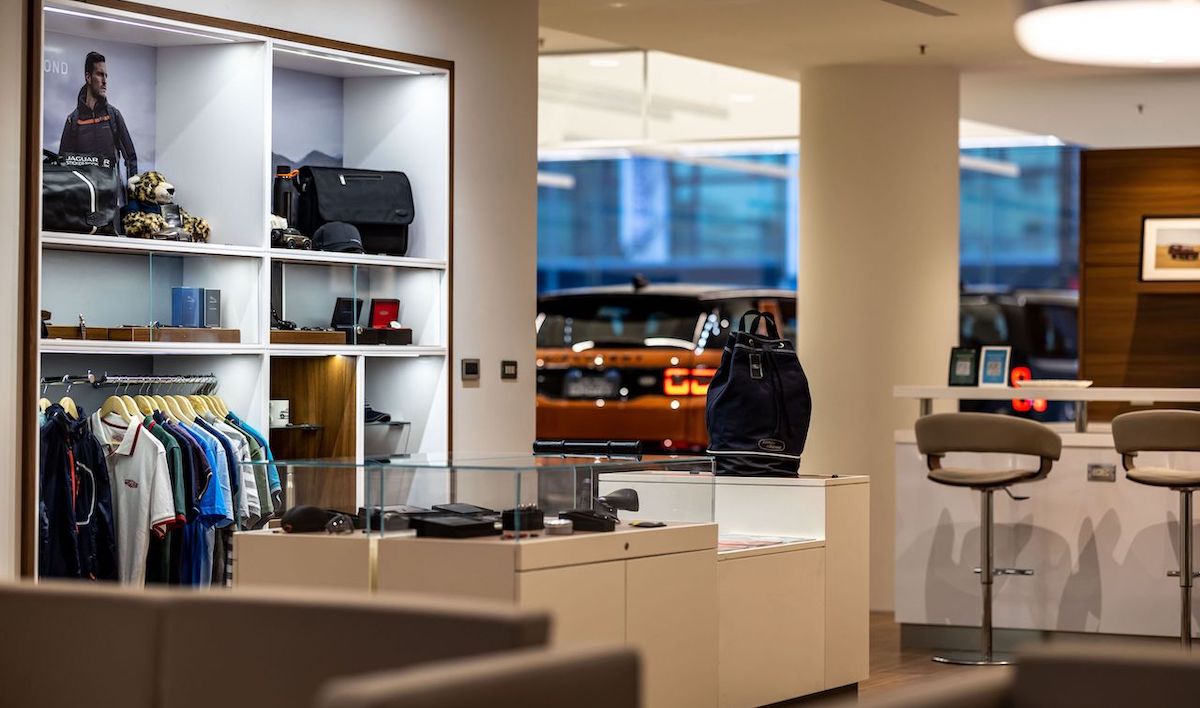Since Tesla’s production issue is finally overcome these years and rise up rapidly in the global car industry and stock market, automakers have deemed the company to be their imaginary enemy five years in the future, even going for enterprise transformations by imitating Tesla’s business model as their exemplar. We can safely say that Tesla’s entrepreneurship and the way to operate business made a greater impact on the global car industry than its actual sales numbers. Aside from the product innovation and manufacturing techs under the lead of Elon Musk, Tesla’s widely-deployed fast charging facilities and online direct sales have been the two crucial strategies traditional carmakers must take into consideration while transitioning to EV brands. Of all the prominent brands affected by this trend, Ford is one of them. With dwindling global market share in recent years, Ford’s transformation is unavoidable; CEO Jim Farley already said the company would consider direct sales in the EV age this June. Based on Tesla’s operation model, customers would order online with non-negotiable prices and have 100% remote pickup and delivery, achieving zero inventory for dealers. Additionally, Ford will follow Tesla’s no-advertisement model for future EVs, especially after Mach-E and F-150 Lightning BEVs’ outstanding sales these days, which boosts the company’s confidence in this decision. Jim Farley also mentioned that Ford needs to partner with dealers to reduce costs by 2,000 USD per unit to match Tesla’s operating costs. Advertisements and inventory cost saving each hold ⅓ of the total reduction (for carmakers and dealers, respectively), while the rest ⅓ would probably be drastically cutting back promotional measure (for both parties). For its next step, Ford will begin talks with North-American dealers about how to adjust their future business models; however, would a total copy of Tesla’s models fulfill traditional carmakers’ wish for a good sales performance while maintaining lower costs and their dealers’ profits?
Regarding business models, what traditional carmakers today differentiate from Tesla and other startups the most is that the former still needs dealerships, while the latter ones adopt a 100% direct sales model (in the Chinese market, they would only entrust dealers for managing delivery centers instead of front-end sales). When dealership inevitably becomes the biggest cost (and profit) variable in the future EV business, traditional carmakers will find themselves between a rock and a hard place. Instead of viewing dealers as a burden for future operating systems, we could redefine the possible roles they could play while gaining an edge over startup business models.
- Continuous sales after delivery. In the future car world, vehicles will become platforms; these platforms are similar to cellphones and could download newly-developed functions via OTA (while cellphones utilize apps) to equip users with the latest technologies. When dealers unavoidably lose their front-end sales roles, they could employ product experts (or product experiencers) to extend their service after deliveries and guide customers to experience newly-introduced functions in brick-and-mortar stores, and then have customers purchase online. While startups also have experience stores, their distribution is often sparse, and their product experts’ functions are overly monotonous, lacking a holistic approach for car owners. More on this topic in my next point:
- Product comparison between ICE and EV, and replacement service for ICE car owners. Because product experts from traditional dealers are in charge of both ICE cars and EVs, this is their opportunity to expand their job scope on this foundation… Boasting a massive advantage over startups, they could analyze the benefits and drawbacks after real-car experiences (while acknowledging their ICE cars’ advantages) for all ICE car owners (especially brand-loyal customers) and partner with used car department appraisers to negotiate the trade-in details and decide on appropriate EV models. This approach will be unattainable for startups.
- Transformation of workshop operation. ICE car workshops profit from chemicals, body & paint, and labor charge for regular maintenance. In the era of smart EVs, the income will immensely deflate. Startups’ aftersales systems are often barebones, and they usually send major repairs or battery replacement jobs to their HQ, taking a long time to finish the work. Traditional dealers should utilize their current facilities and manpower to co-develop on-site malfunction battery cell replacement services with carmakers to preserve their values for car owners and their business activities.

Of course, these measures mentioned above still miss the heart of the issue: even if traditional carmakers completely follow Tesla’s path, they couldn’t completely solve the issues but would face an unknown future for their dealers. In my opinion, an effective solution for ensuring traditional carmakers’ smooth transitions to EV companies and dealerships’ survival under further investment on charging equipment would include the possibility of splitting every dealer into two parts…
- Merge product expert teams, sales business units, delivery centers, used car services, and marketing departments into one company, taking charge of brand-related works.
- The aftersales department forms another independent company. Aside from their brand-related models, the company can engage in multi-brand aftersales and provide a differentiated business model with more professional maintenance care and more comfortable service experiences than road-side workshops. Although it will be hard to acquire genuine parts from other brands to match their dealers’ maintenance quality, the structural change would open up another business opportunity for dealers and arm them with competitive component costs via the carmaker’s supply chain. Besides, with the increasing homogeneity of future EV batteries, battery replacements will suit models from all platforms. For dealer workshops, they should branch out from serving only their brands.
In conclusion, if traditional carmakers could free their dealers from working only for their brands and enable the dealers’ aftersales to invest in EV equipment and explore more business opportunities, the two companies mentioned above could find their footing in the EV era and continue their partnership with carmakers forever.